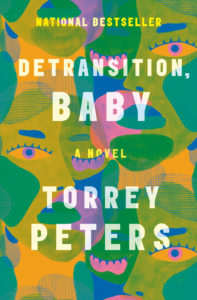Amazon ranks each edition of a book daily, a process that partly involves how well the edition itself is selling but that also, naturally, relates to how well every other book in that category (for example paperbacks) is selling. As you might imagine, authors tend to eyeball these figures with compulsive frequency during the first few months after publication, and may take screenshots of exciting rises. But most of us, no matter how obsessive, occasionally go a day without looking.
I don't know about other authors, but I can state with some confidence that if I miss a day or two of checking my stats, that's when they will have rocketed upward, and although my screenshot will still show a nice-looking ranking, it's not going to capture that high point in the numbers (something that's only visible on a mouse-over).
Such was my experience this morning. Yea, verily, while at first it was cool to see 778,149 (which is a pretty good ranking given how many other paperbacks there are out there, including best-sellers), once I looked at the historical graph, I learned that on July 7th the paperback edition of
In Search of the Magic Theater had reached 307,544! Its previous peaks have been 384,685 on June 8th and 476,918 on June 21st. I had just missed capturing an all-time high for the paperback! The Kindle edition, meanwhile, has had just one notable peak since publication, hitting 262,640 on June 20th. There must have been significant pre-orders, as the Kindle edition opened at 276,852. And indeed, if I look at "All available" rather than the shorter period this book has been out, I discover that the paperback opened at 258,661 on November 5, 2021--almost seven months before publication.
Amazon's figures do not provide numbers of copies sold by them, nor do they tell us anything about bookstore sales. For bookstore sales, there's a tool called BookScan that claims to capture BookScan 85% of all retail print book sales. I'm not too impressed with BookScan, as three weeks after the fact, it hasn't managed to show even the number of copies Barnes & Noble sold the day I did a signing at their local store. Nor does it seem to be capturing the Amazon sales that provided those high rankings. Surely we can call both Amazon and Barnes & Noble retail sellers of print books?
Yes, I'll know my sales in accurate detail once I get my first royalty statement, but publishers take a while to prepare those. I'll be getting the report of my first month's sales sometime before October.




















